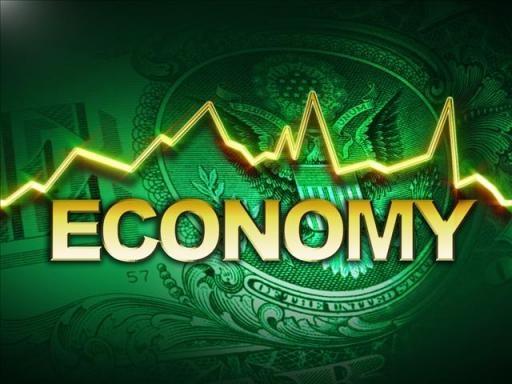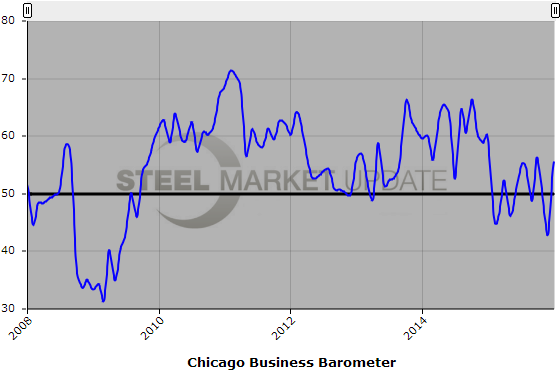Market Data

January 30, 2016
Chicago Business Barometer Bounces Back in January
Written by Sandy Williams
The Chicago Business Barometer bounced back in January after a surprise drop in December. The index rose 12.7 points to 55.6 from the previous reading of 42.9.
The welcome surge followed a weak quarter averaging 47.7, the lowest average since Q3 2009. January’s increase, however, may not be sustainable said Chief Economist of MNI Indicators Philip Uglow.
“While the surge in activity in January marks a positive start to the year, it follows significant weakness in the previous two months, with the latest rise not sufficient to offset the previous falls in output and orders. Previously, surges of such magnitude have not been maintained so we would expect to see some easing in February. Still, even if activity does moderate somewhat next month, the latest increase supports the view that GDP will bounce back in Q1 following the expected slowdown in Q4.”
New Orders reached 58.8, its highest level since January 2015, with a leap of 20.2 points. Production surged by double digits climbing well above the 50 neutral level.
Order backlogs remained below 50 for the 12th consecutive month, but rose sharply in January. Employment levels increased moderately but remained in contraction. Supplier deliveries fell in January 4.5 points to 49.2.
Prices paid declined slightly in last month remaining below the 50 neutral point. “Continued weakness in commodity prices and the impact of the strong dollar meant that the long-term disinflationary trend continued, with downward pressure on prices intensifying in January,” wrote MNI.
Below is a graph showing the history of the Chicago Business Barometer. You will need to view the graph on our website to use it’s interactive features, you can do so by clicking here. If you need assistance with either logging in or navigating the website, please contact our office at 800-432-3475 or info@SteelMarketUpdate.com.








